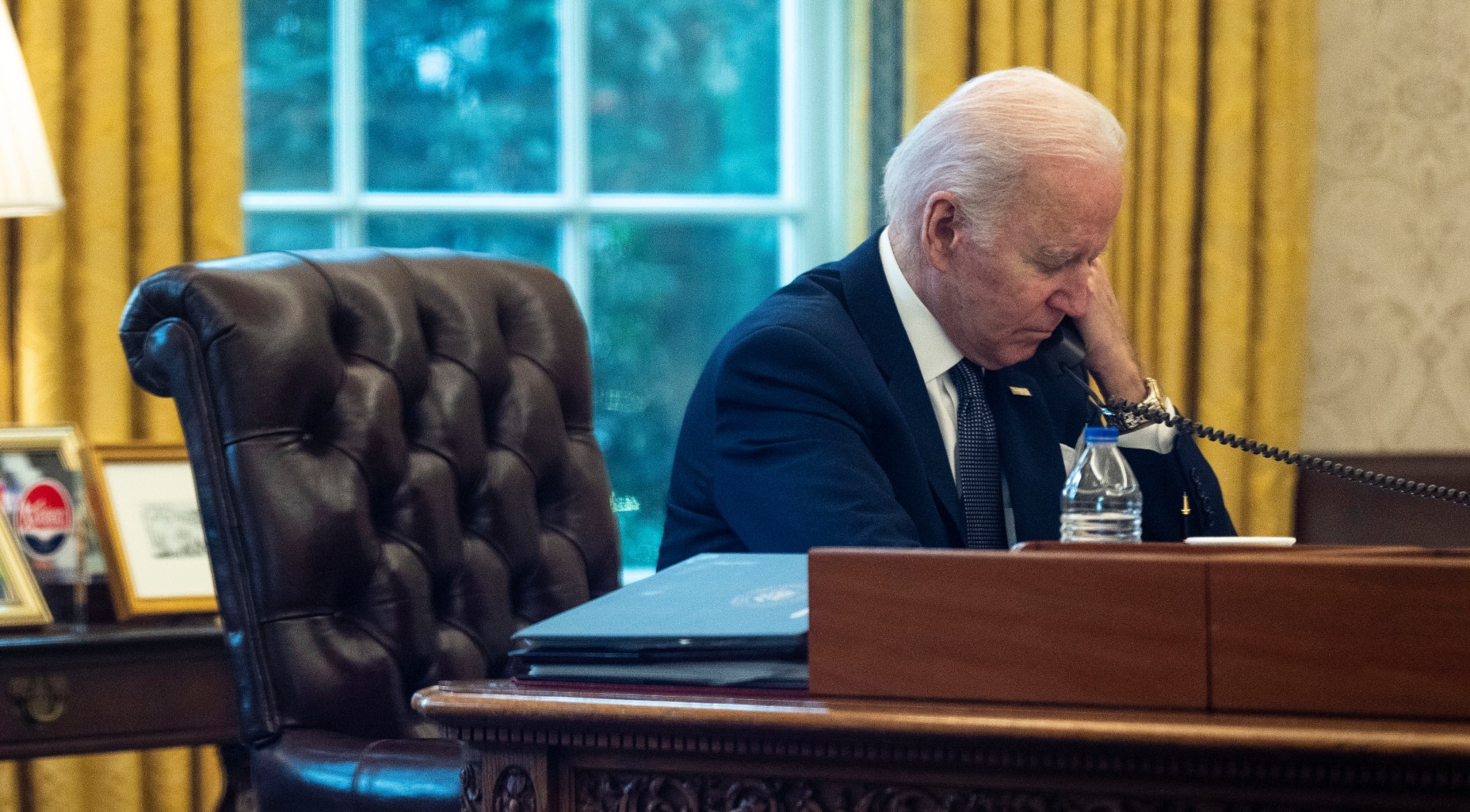OPINION: This article may contain commentary which reflects the author's opinion.
The United States is risking a nuclear exchange with Russia if the Biden administration decides to help Ukraine militarily retake Crimea, according to a former long-serving Republican lawmaker from Texas.
Dr. Ron Paul, the father of Sen. Rand Paul (R-Ky.), noted the potential escalation in a Twitter post containing a clip of an interview he did recently discussing the administration’s consideration, asking, “Are Americans okay with this?”
U.S. May Risk Nuclear Conflict, Over Crimea? Are Americans OK With This?
Watch the whole show here: https://t.co/w9XYp4s3z2 pic.twitter.com/MOeHsAk215
— Ron Paul (@RonPaul) January 19, 2023
The interview references a New York Times story published late last week, which noted that “the Biden administration is considering the argument that Kyiv needs the power to strike at the Ukrainian peninsula annexed by Russia in 2014.”
The Times added:
For years, the United States has insisted that Crimea is still part of Ukraine. Yet the Biden administration has held to a hard line since Russia’s invasion of Ukraine, refusing to provide Kyiv with the weapons it needs to target the Crimean Peninsula, which Russia has been using as a base for launching devastating strikes.
Now that line is starting to soften.
After months of discussions with Ukrainian officials, the Biden administration is finally starting to concede that Kyiv may need the power to strike the Russian sanctuary, even if such a move increases the risk of escalation, according to several U.S. officials who spoke on condition of anonymity to discuss the sensitive debate.
The paper noted further that, at present, there are tens of thousands of “dug-in” Russian troops stationed in Crimea at several military bases. The Times also noted that there has been no change in position from the Biden administration: Crimea is Ukrainian territory.
“We have said throughout the war that Crimea is Ukraine, and Ukraine has the right to defend themselves and their sovereign territory in their internationally recognized borders,” said Adrienne Watson, a spokeswoman for the National Security Council.
Privately, administration officials questioned Ukraine targeting Crimea, saying that Kyiv had better target choices elsewhere.
“But the Biden administration has come to believe that if the Ukrainian military can show Russia that its control of Crimea can be threatened, that would strengthen Kyiv’s position in any future negotiations,” the Times said. “In addition, fears that the Kremlin would retaliate using a tactical nuclear weapon have dimmed, U.S. officials and experts said — though they cautioned that the risk remained.”
The rethinking of Crimea has evolved from the earliest days following Russia’s invasion, now nearly a year ago, when administration officials were reluctant even to admit the U.S. was providing Ukrainian forces with Stinger shoulder-fired anti-aircraft missiles.
“But over the course of the conflict, the United States and its NATO allies have been steadily loosening the handcuffs they put on themselves, moving from providing Javelins and Stingers to advanced missile systems, Patriot air defense systems, armored fighting vehicles and even some Western tanks to give Ukraine the capacity to strike against Russia’s onslaught,” the Times reported.
“Now, the Biden administration is considering what would be one of its boldest moves yet, helping Ukraine to attack the peninsula that President Vladimir V. Putin views as an integral part of his quest to restore past Russian glory.”
The additional military aid would amount to direct American intervention in the conflict, something that Ukrainian President Volodymyr Zelenskyy has been pressing for now for months, the Times added.
That said, Dr. Paul worries about a terrible miscalculation on the part of the Biden administration.
“They presume that if we do ‘A’ that ‘B’ is gonna happen,” Paul said. “It almost — it never does. In economics, it doesn’t work that way, in foreign policy, it doesn’t work very well, either.”
But that doesn’t seem to be the prevailing thought within the administration, as well as those advising it.
“Ukraine could use Bradleys to move forces down major roads, such as the M14, which connects Kherson, Melitopol and Mariupol,” said Seth G. Jones, a senior vice president at the Center for Strategic and International Studies, according to the Times. “Any Ukrainian infantry advancing through these areas would face significant fire from Russian positions, and Bradleys offer helpful firepower and protection for troops.”
“We think now is the right time to intensify our support for Ukraine,” Britain’s foreign secretary, James Cleverly, noted Tuesday while he was visiting Washington, D.C. “We can’t allow this to drag on and become a kind of First World War attritional-type stalemate.”
